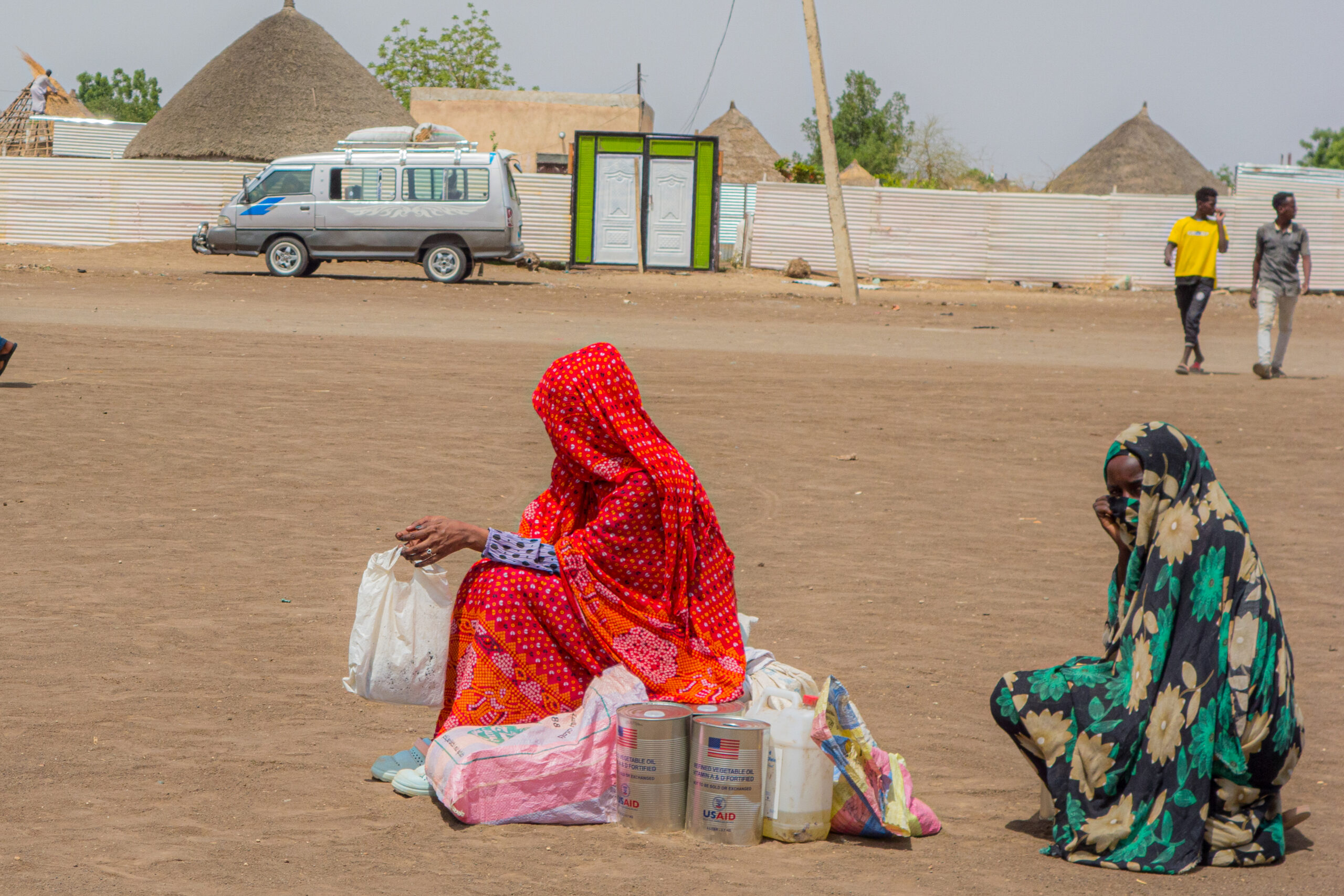(Nairobi, Kenya) Over half of Sudan’s population, totaling 26.5 million people, is facing disastrous levels of hunger. This situation is forecasted to worsen as the country endures reduced agricultural output ahead of the next harvest in September 2024, while fighting continues to escalate. Since the beginning of July, an uptick in violence in Sinnar and Sinjah in the Eastern part of Sudan has led to an influx of displaced people into towns in neighboring regions such as Gadarif, New Halfa, and Kassala. Many of those arriving have already been displaced multiple times since the beginning of the conflict in April 2023.
“In Kassala, we are witnessing droves of displaced people, mostly women and children, arriving daily from Sinnar and Sinjhah where there has been intense fighting,” said Ebstem Ahmed, CARE Sudan, Head of Office in Kassala. “They arrive utterly exhausted, starving, penniless, and deeply traumatized. The stories we hear from them are nothing short of tragic. They speak of harrowing journeys across areas filled with combatants who threaten them. They left with barely any food or water as they had to flee with nothing but the clothes on their backs. When they arrived here, they find there’s hardly anything to eat and must depend on handouts from community members struggling to cope with limited food.”
Across the country, the situation is particularly dire for 755,000 people in 10 states facing the most severe level of food insecurity. This includes parts of Kordofan, Blue Nile, Al Jazirah, and Khartoum the entire Darfur region. The escalation in conflict in Sinnar and Sinjah means that much-needed supplies cannot reach the White Nile, Kordofan, and further on to Darfur thus compounding the needs of affected communities. The ongoing fighting has disrupted agricultural production, driven up the price of food and fuel, and displaced families.
In Darfur, life for those who fled from the conflict in El-Fasher is a daily struggle with people resorting to eating leaves just to get by. Halima*, a displaced mother of five, paints a grim picture of the daily struggle for survival at an Internally Displaced Persons (IDP) camp in East Darfur. “My children are starving and every day I see them losing weight as they become sicker,” she said,”There is food in the markets, but it’s too expensive. We are afraid we might lose our children. We urgently need food, clean water, good shelter, and medical care.”
“Families in Sudan are caught in a spiraling horror, and are living a nightmare that continues to worsen,” said Abdirahman Ali, CARE Sudan Country Director. “In the camps and other sites, parents are skipping meals to feed their children, who are already weak from malnutrition. Health facilities are overwhelmed, with many not functioning due to attacks, and lack of supplies and resources. We risk losing children to malnutrition due to a lack of necessary nutritional supplements and/or advanced health services.”
In Sudan’s conflict, women and girls face a harsh reality. Fighting has worsened existing inequalities between sexes, leaving women and girls the hardest hit by violence, displacement, hunger, and lost livelihoods. These hardships have created a critical situation women and girls are deliberately targeted and are victims of sexual violence as conflict intensifies.
CARE Sudan is intensifying efforts to support the newly displaced and starving people. In Kassala, over the last several weeks more than 6,000 IDPs have received emergency food rations, including sorghum, cooking oil, salt, and lentils. In East Darfur, CARE has reached 1303 children with food rations. Despite interventions like these, a lot more still needs to be done to reduce the suffering. Life-saving food assistance to millions on the brink of starvation is key to alleviating the situation. Funding the grossly underfunded humanitarian response plan is essential to meeting the growing needs of the suffering. We urge all parties to immediately cease hostilities and allow unimpeded humanitarian access without delay. Additionally, supporting healthcare systems is essential, as they are struggling to meet the needs of displaced populations. For people in Sudan, every day is an uphill struggle to survive. We can’t stand by and watch Sudan succumb.
*- Name changed to protect identity.
ENDS
For media enquiries contact Briony FitzGerald on 0404 117 927
About CARE Sudan
CARE has been operating in Sudan since 1979, implementing humanitarian and development programs focused on strengthening womens’ and girls’ empowerment, equality, humanitarian action, and resiliency.
CARE supports over 83 health facilities in six states in Sudan, providing life-saving health and nutrition services.
The resumption of nutrition and Health Services in Nyala was made possible thanks to generous funding from USAID – Bureau for Humanitarian Assistance and European Union Humanitarian Aid.
CARE’s lifesaving operations are ongoing in:
o East Darfur – water provision to refugees and host community and Health services
o Gedaref – WASH provision for refugees, IDPs, and host community and Health services
o Al Gezira – WASH provision to IDPs and host community
o South Kordofan- Supporting Women’s Empowerment through economic and livelihoods
activities
o South Darfur- Provision of WASH, Livelihoods and Community empowerment
o Khartoum: Provision of MPCA to most affected populations in Jebel Awily, Mayo and
Kalari communities
About CARE Australia
CARE Australia supports women around the globe to save lives, defeat poverty and achieve social justice. We work in partnership with local communities to provide equal opportunities for women that they have long been denied: the ability to earn an income, gain access to their fair share of resources, to lead and participate in decisions that affect their lives, and to be able to withstand the increasing impacts of climate disasters and other crises. www.care.org.au

